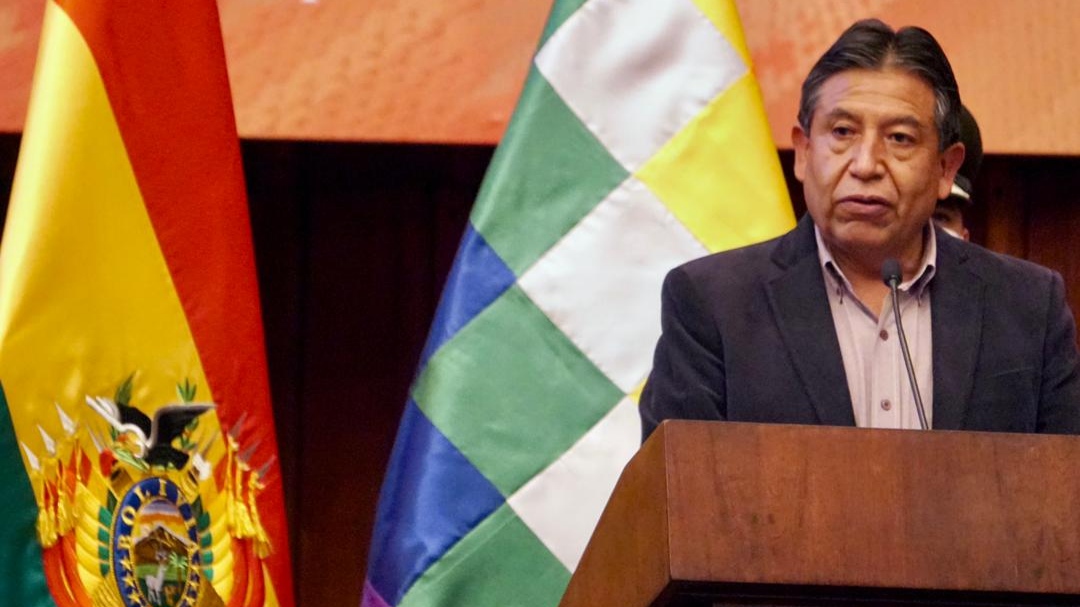During the Meeting on “Re-establishing our Connection with the Mother Earth: Global Reflections for the Defense of Pachamama”, the Plurinational State of Bolivia undertook the commitment to lead, in coordination with all the peoples of the South, a global action on this matter and requested the Secretary General of the United Nations (UN), António Guterres, to urgently convene an Earth Assembly to “continue developing the cosmobiocentric, non-anthropocentric paradigm, within the framework of multilateralism”.
As stated by the Bolivian Vice President, David Choquehuanca, during his speech at the event held in La Paz, on the occasion of International Earth Day, in which he also requested the UN General Assembly to create a multilateral agency for water for life, “understanding that we have to open spaces for political dialogue at the highest level to progress in the construction of common guidelines towards a water for life agenda”.
On behalf of the Bolivarian Republic of Venezuela, the Minister of People’s Power for Foreign Affairs, Jorge Arreaza, focused his speech on the failure of the savage capitalist system, which has turned nature into a commodity and in which it is impossible to fulfill the objectives of humanity; therefore, “we must consider the capitalist system defeated and decide to undertake another one, in which human and production relations with Mother Earth are radically different. It is up to us to fight this hard battle”.
He pointed out that there is not much time to build this post-capitalist system, so he proposed that the Charter of the United Nations – signed in 1945 – be amended to incorporate the rights of Mother Earth.
The same concern was expressed by UN Secretary General António Guterres, who, in a recorded message, stated that crucial ecosystems and food chains are on the verge of collapse because the air, land and seas are being treated as landfills. “That is a suicidal attitude. We must end our war with nature and take care of it until it recovers its health,” he urged.
He stressed that this means limiting the increase of global temperature to a maximum of 1.5°C, adopting more solid measures to protect biodiversity and reduce pollution, by creating circular economies that generate less waste. He also emphasized that the recovery from COVID-19 pandemic offers an opportunity for the world to walk a cleaner, greener and more sustainable path.
Alicia Bárcena, Executive Secretary of the Economic Commission for Latin America and the Caribbean (ECLAC), in her remarks, shared that ” citizens of the world are experiencing, as never before, the consequences of levels and patterns of consumption and production resulting from predatory models of ecosystems and natural resources, which threaten the health of the planet and all its inhabitants, and this has caused an unprecedented ecological and climate crisis in the modern history of mankind.
Finally, Luis Felipe López Calva, regional director for Latin America and the Caribbean of the United Nations Development Programme (UNDP), noted that the success of the United Nations Decade on Ecosystem Restoration 2021-2030 depends on the collaboration of everyone, especially governments, and in this regard, a global transformation of attitudes and practices is necessary, and it is especially urgent to address the way in which the energy that fuels the progress of countries is produced.
Other participants were Nnimmo Bassey, former president of Friends of the Earth International (Nigeria), Marie Toussaint, MEP and representative of the Alliance Against Ecocide (France), Eliana Torrico, Tree Collective (Bolivia), Vandana Shiva (India) and Cardinal Barreto, president of the Pan-Amazonian Ecclesial Network (Peru).
